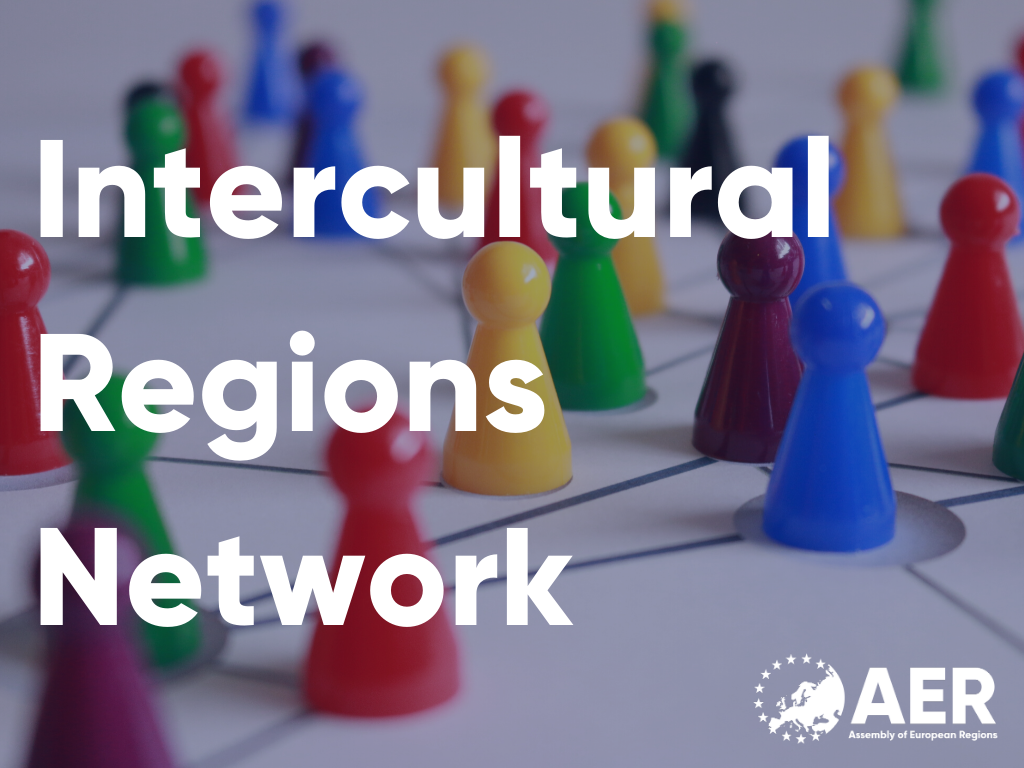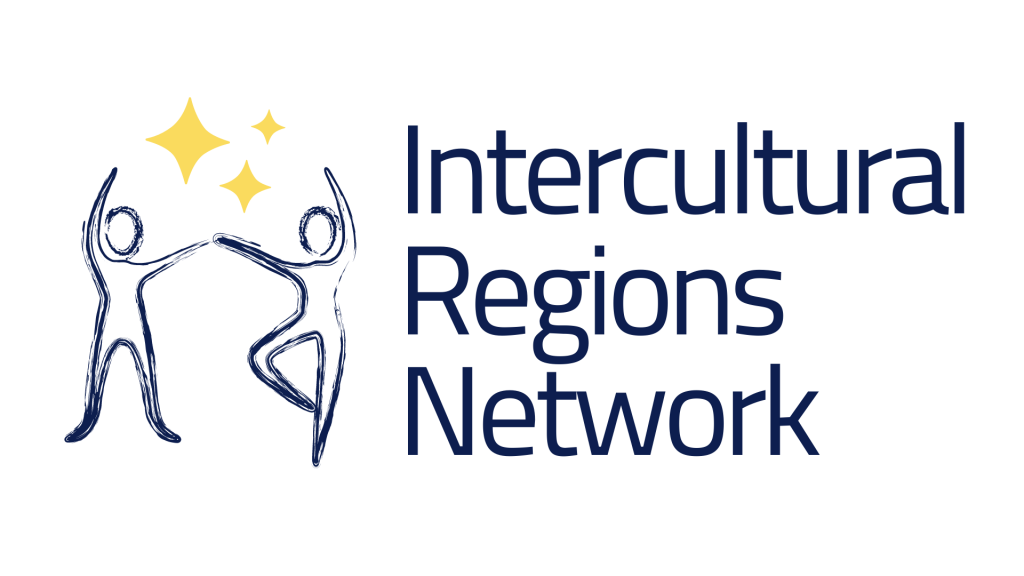
About
Europe is becoming more diverse. The key to fostering inclusion is adopting an intercultural approach based on strong coordination among all levels of government and other relevant stakeholders.
Inspired by the Intercultural Cities Programme of the Council of Europe, the Intercultural Regions Network aims to provide a platform for regions to share knowledge, resources and experiences to promote intercultural integration at regional level.
The Network will provide support for regions to design, implement and evaluate diversity and inclusion strategies based on the principles of equal opportunities, recognition of diversity and positive interaction between people from different origins.
Principles and objectives of the Network
- Guarantee equality of rights and duties for all residents. Regions will work to balance the rights and obligations in guaranteeing equality of rights and obligations for all citizens, and will also work to guarantee access to public services, such as education and health for all citizens, regardless of their administrative situation.
- Guarantee equality of opportunities for all citizens. Regions will promote social mobility opportunities to ensure all inhabitants have the chance to advance via employment, entrepreneurship, education, voluntary work, political engagement, and cultural pursuits.
- Recognize and acknowledge diversity. Regions will promote actions and policies that help all citizens understand the value of diversity, embrace pluralism and deal with difference in a constructive manner.
- Promote interaction among all citizens. Regions will facilitate meaningful intercultural dialogue between all citizens, regardless of their country of origin or other elements of identity.
- Promote a shared common culture. Regions will promote the creation of a shared public culture based on democratic values, respect, human rights, and also gender equality.
- Fight against racism, xenophobia, hate, and any kind of discrimination. Regions will actively fight against all forms of hate violence at all levels.
- Work towards increasing the sense of social belonging of all citizens. Regions will work towards achieving that all citizens feel part of the society without having to renounce to their cultural identity.
- Involve citizens of diverse background in the decision-making process. Regions will involve all citizens affected by specific public policies, regardless of their origin and nationality, to participate in the design and implementation process, including via modern deliberative and participatory processes.
- Work towards full citizenship for all citizens. Regions will actively work to enable all citizens to obtain citizenship in the countries where they are living.
Roadmap and activities
The activities of the Intercultural Regions Network have been established by the member regions and key actors involved: the Council of Europe and the Assembly of European Regions in synergy with two projects: INCLUD-EU and EU-BELONG.
- Development of a generic policy framework and a multi-stakeholder governance model for intercultural integration at the regional level, based on the Principles of the IRN, as well as adapting it to the Intercultural integration policy approach and the Intercultural cities INDEX benchmark to the regional level in order to monitor policy progress.
- Organisation of capacity-building sessions for regional officials (elected and non-elected).
- Development of regional intercultural strategies.
- Embedding regional intercultural strategies in action – commitments by stakeholders.
Members
- Catalunya (ES)
- Värmland (SE)
- Västra Götaland (SE)
- Västerbotten (SE)
- Emilia Romagna (IT)
- Innlandet (NO)
- Murcia (ES)
- Navarra (ES)
- Valencia (ES)
- Arad (RO)
- Basque Country (ES)
- Council of Europe
If you are interested to join our network, please fill in this expression of interest and send it to Vania Freitas [email protected]

News
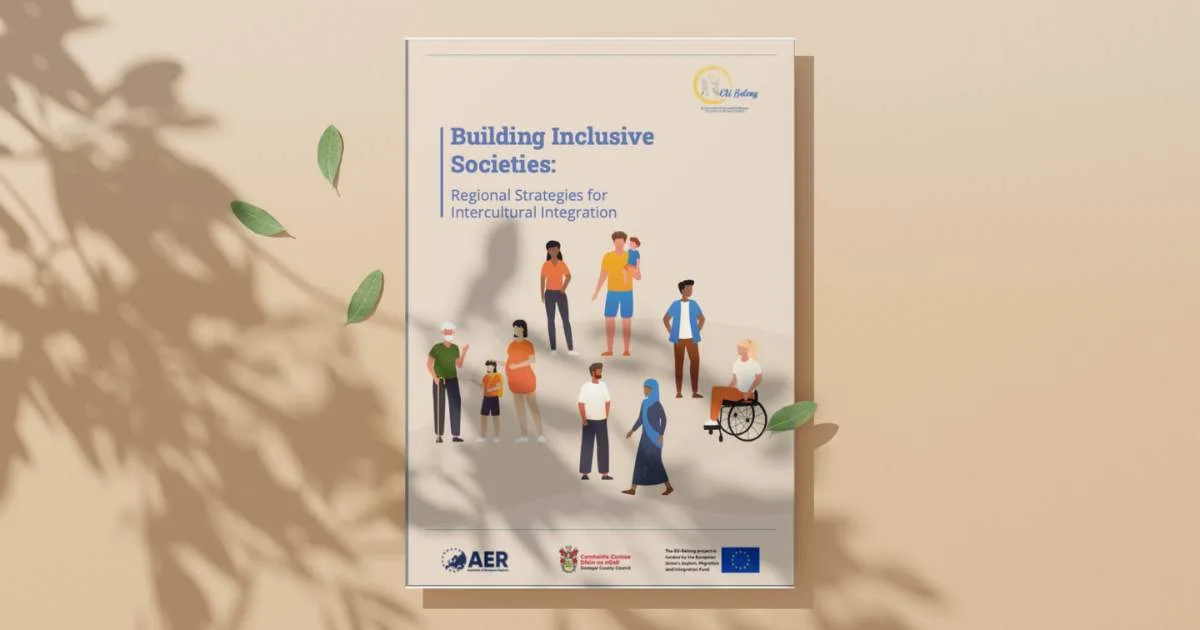
NEW PUBLICATION! Building Inclusive Societies: Regional strategies for intercultural integration
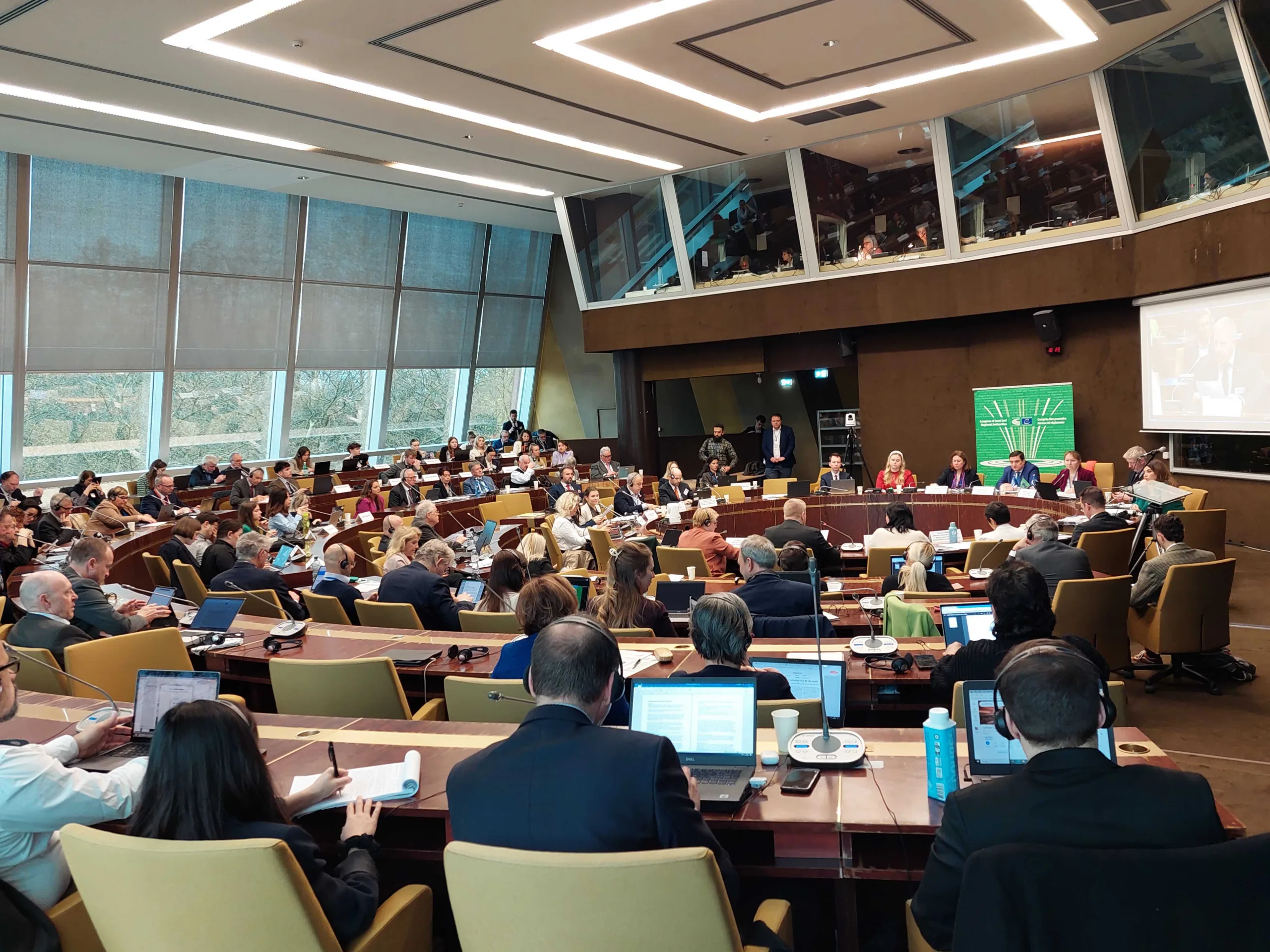
Interculturalism: A Strategy for Europe’s Future
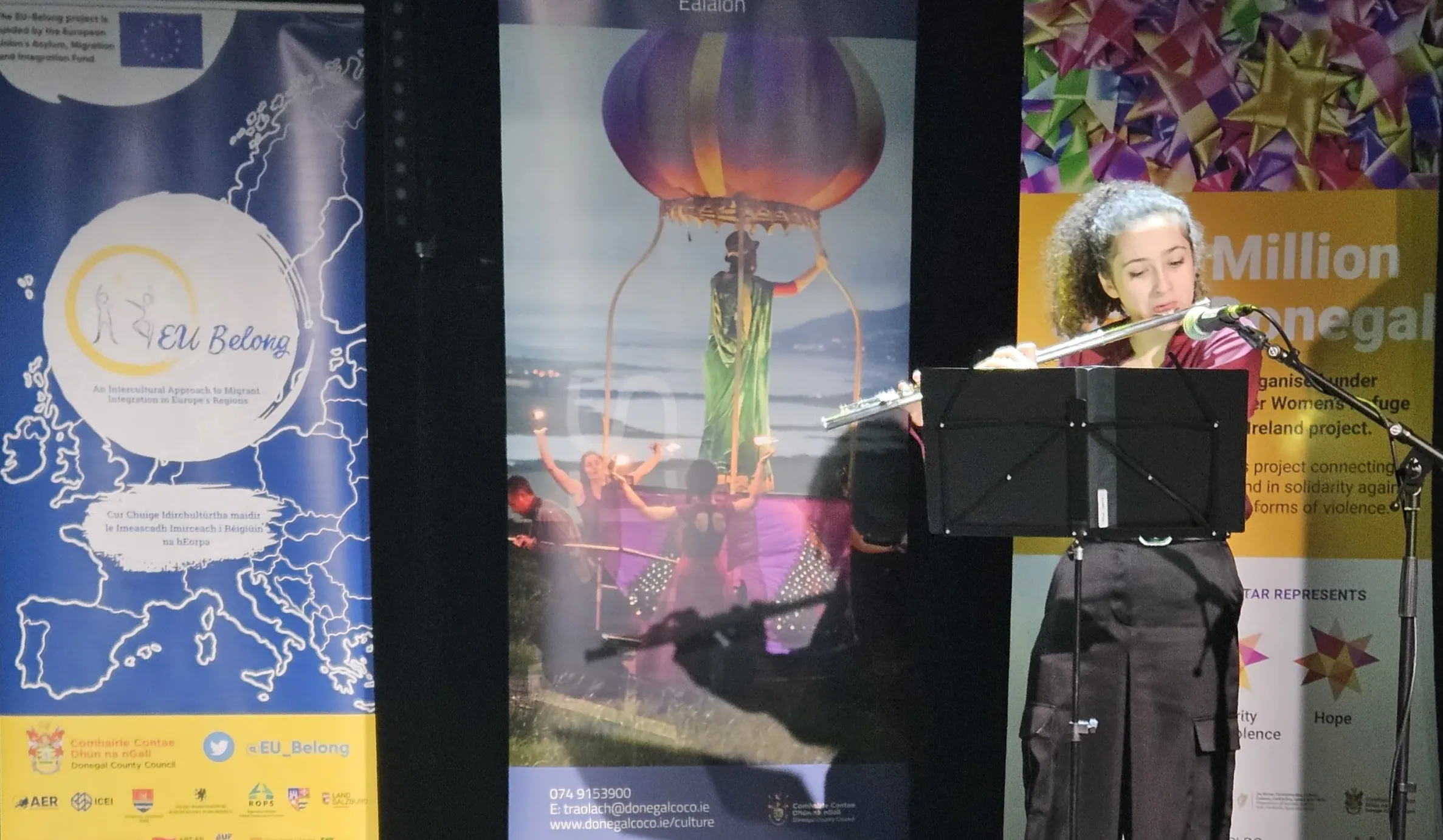
EU-Belong at One Donegal Social Inclusion Week
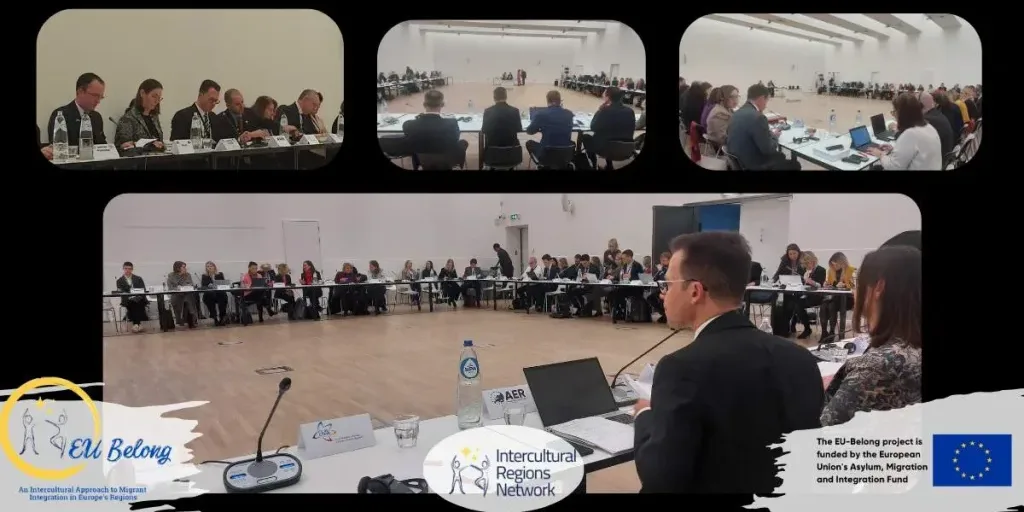
EU-Belong at High Level EU Event
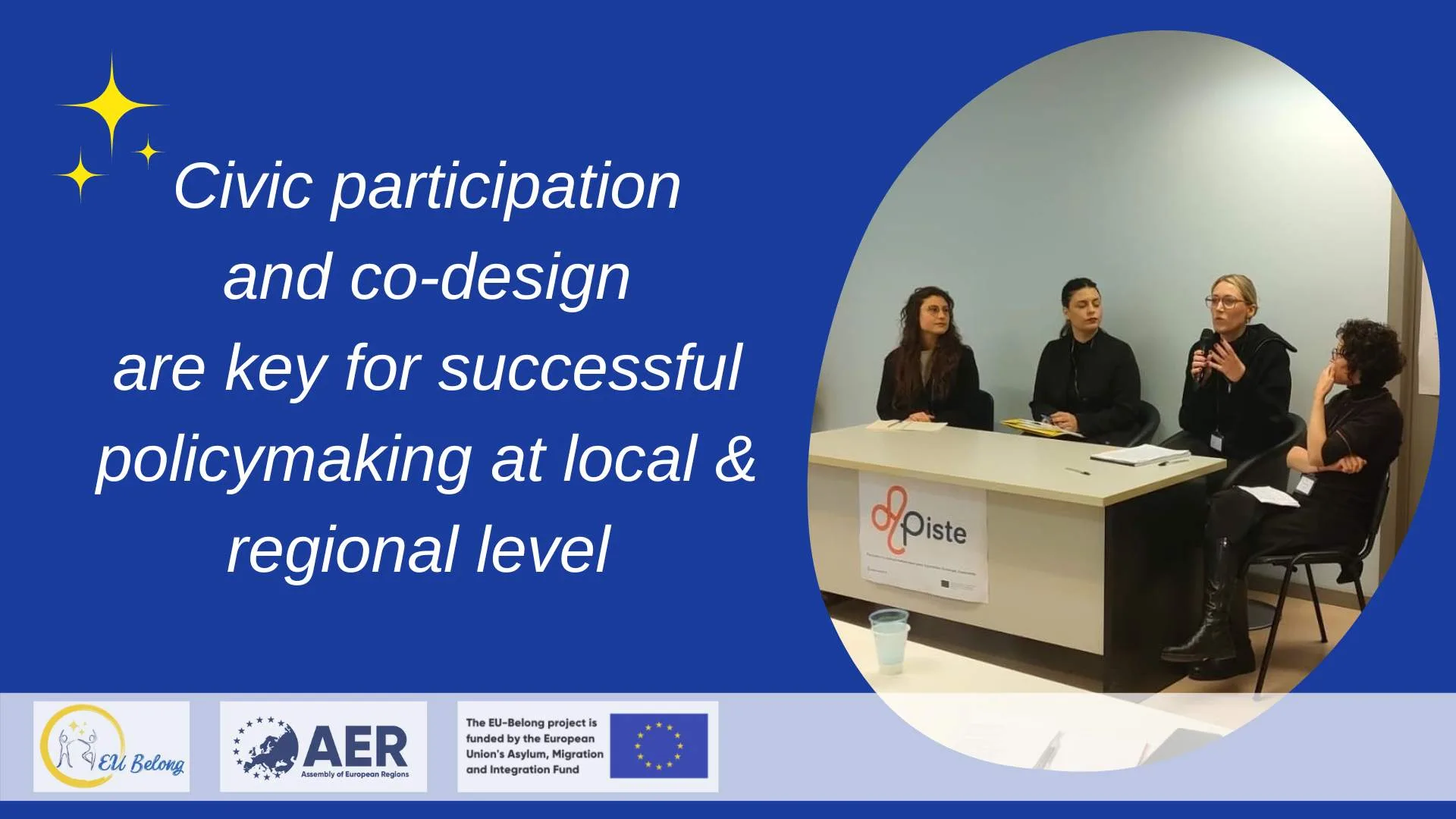
EU-Belong at Conference on Experimenting at Local Level to Improve Participation

Inclusion café: Co-design for temporary housing solutions
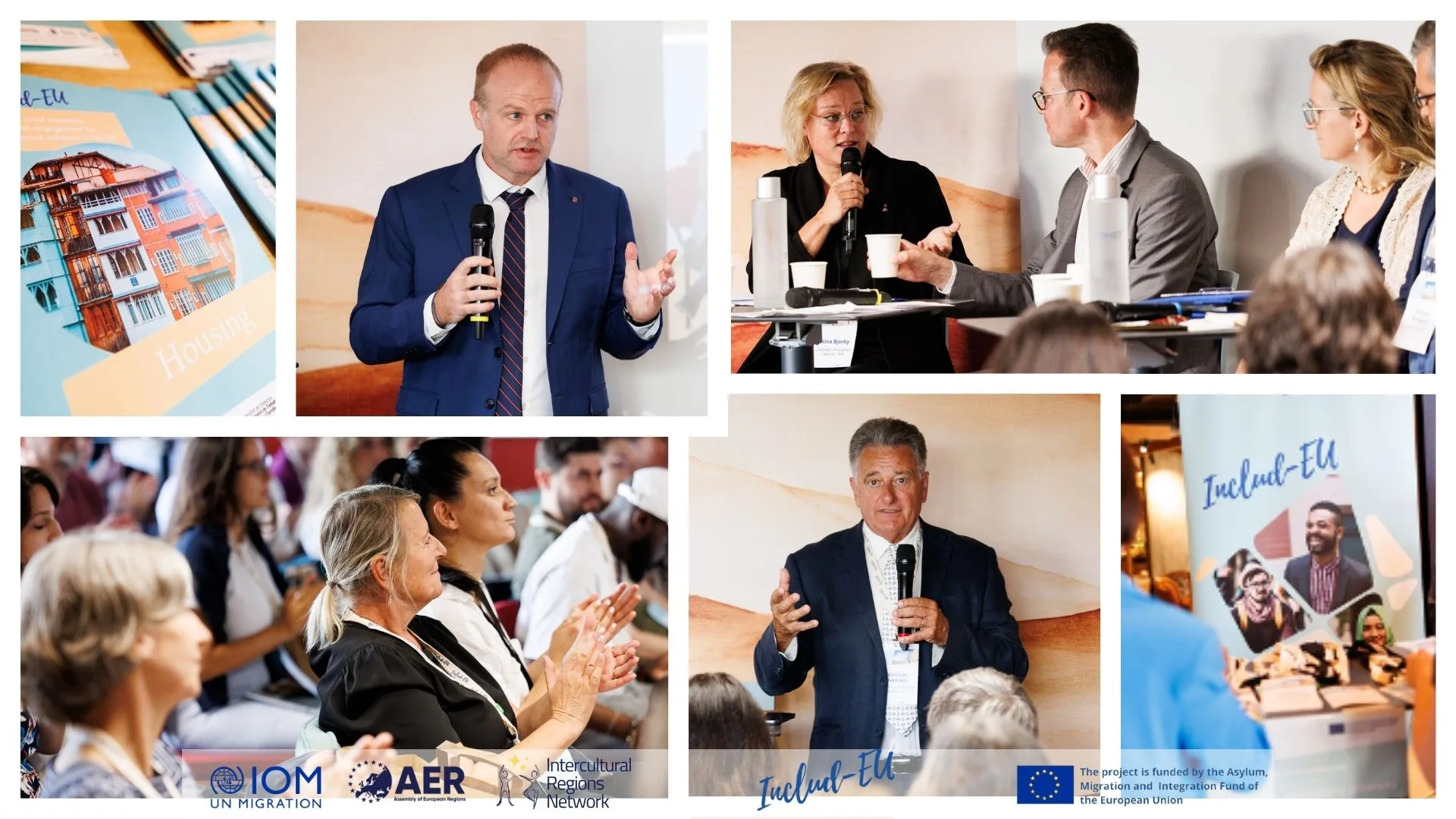
AER President and Vice-Presidents highlight Value of Diversity at Includ-EU Final Conference
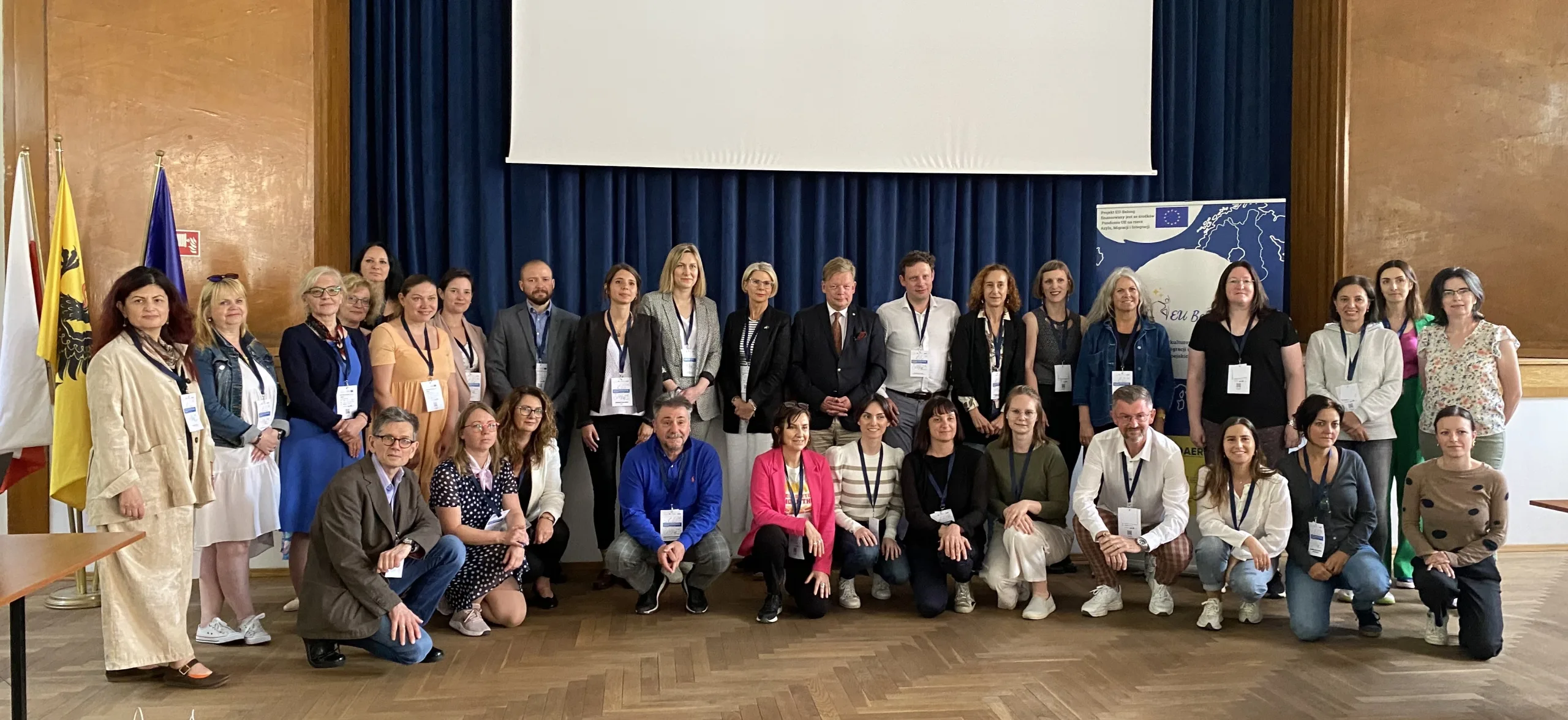
EU-Belong Conference in Gdańsk: addressing the housing crisis
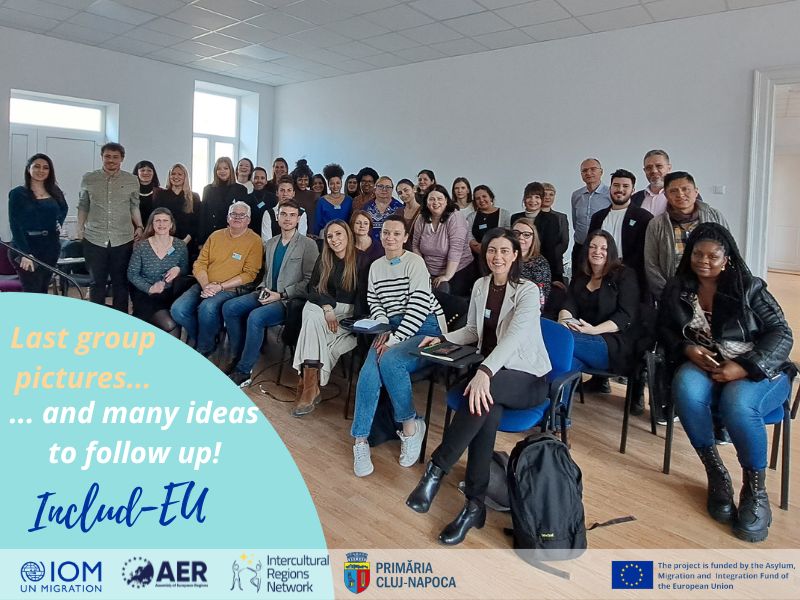
A Whole-of-Society Approach to Inclusion

We’re looking for a coach for a one-off online group coaching session in June 2023!
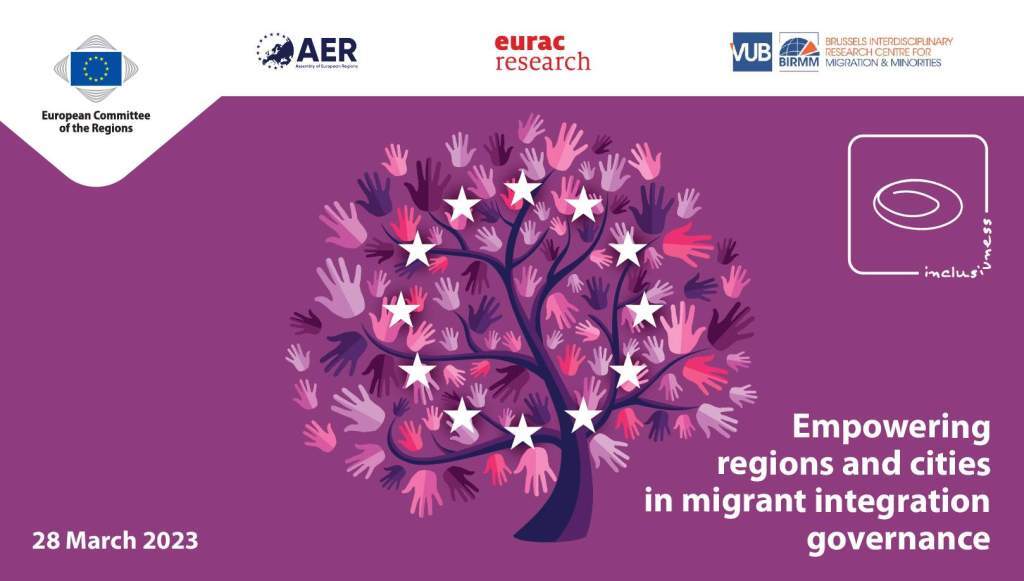
EU-Belong: Diversity for Better Inclusion is a Shared Responsibility
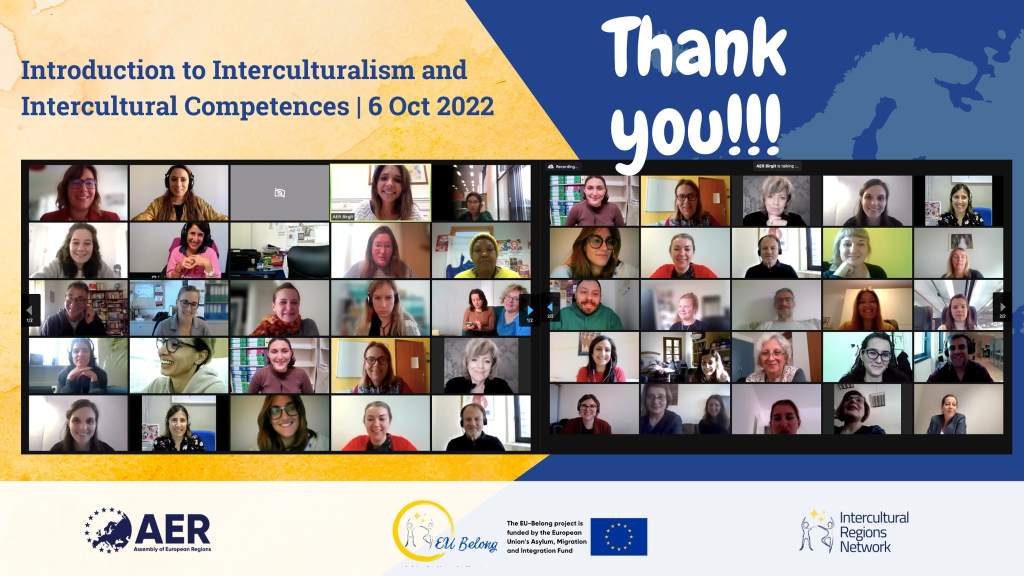
Interculturalism for Intercultural Regions to be!

How To Foster An Intercultural Approach To Education & Training- Highlights From Includ-EU Webinar

Inclusion, Creativity & Human Potential

How will an Intercultural Approach to Migrant Integration help Europe’s Regions- The EU-BELONG Project takes off!
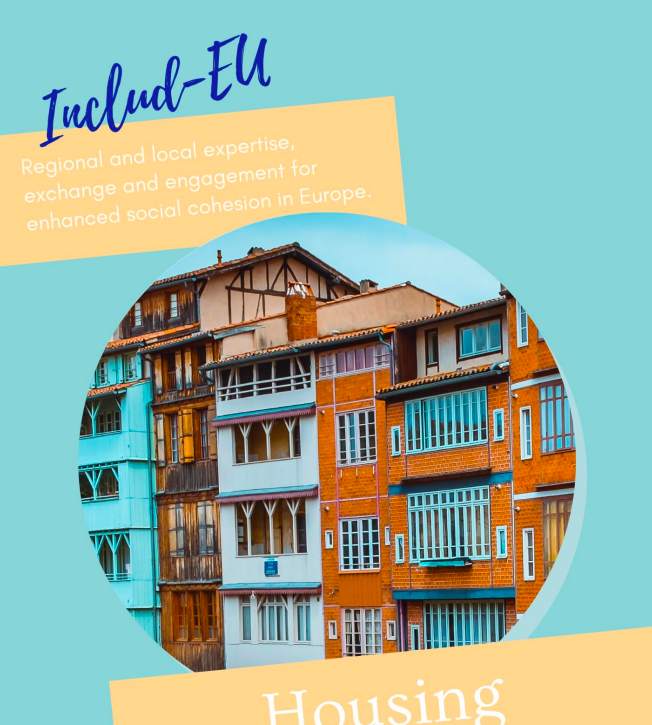
The Includ-EU Project Launches Its Own Newsletter!
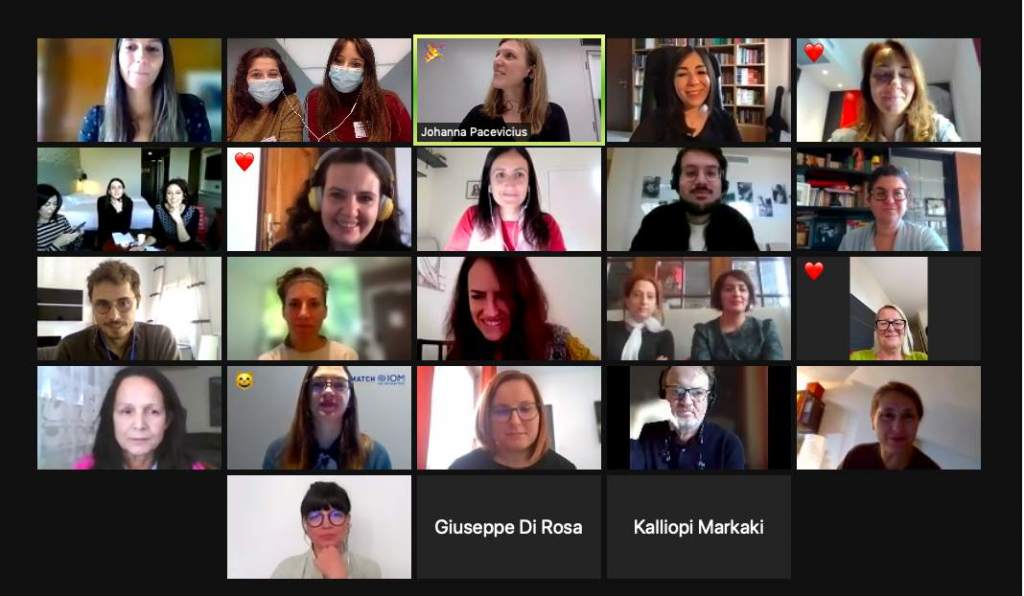
Includ-EU and the Agenda 2030- Two Days of Exchange at the Heart of Europe

Not Just Another Workshop: Looking Back at the Includ-EU First Regional Peer-2-Peer Learning
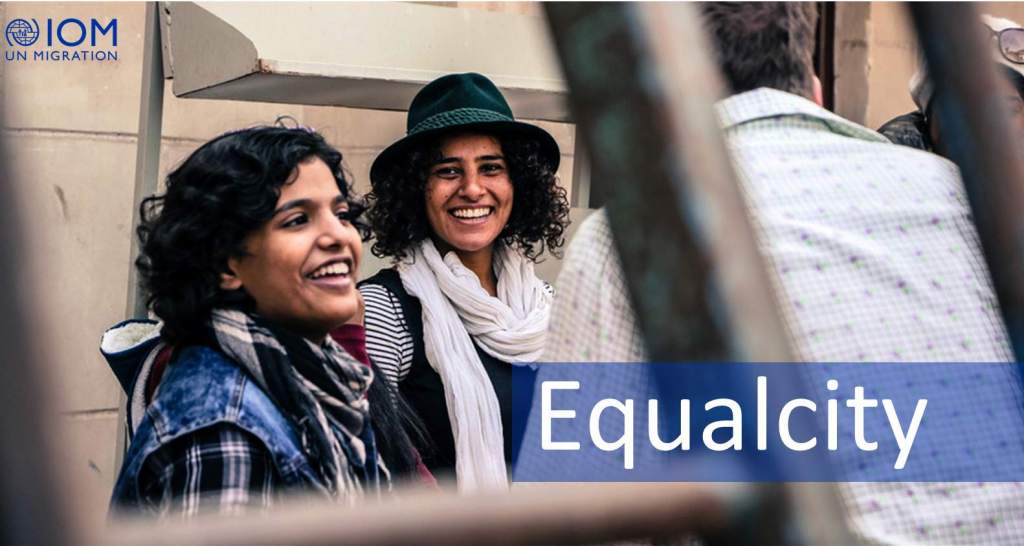
Opportunity: Capacity Building Of City Services For The Inclusion Of Migrants
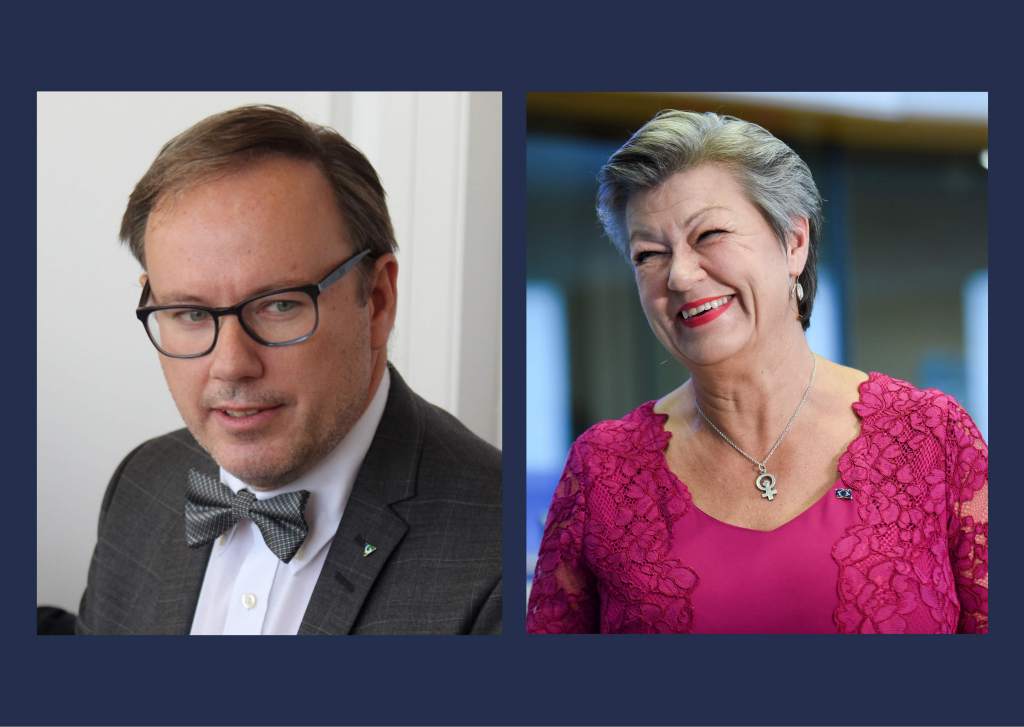
AER and Intercultural Regions Network meet with Home Affairs Commissioner Ylva Johansson
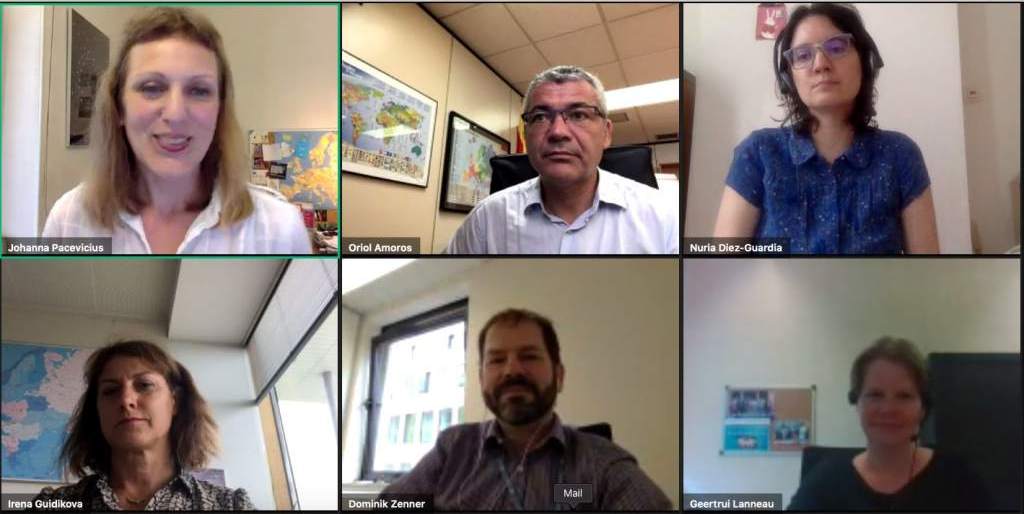
The intercultural approach: a key for better service provision
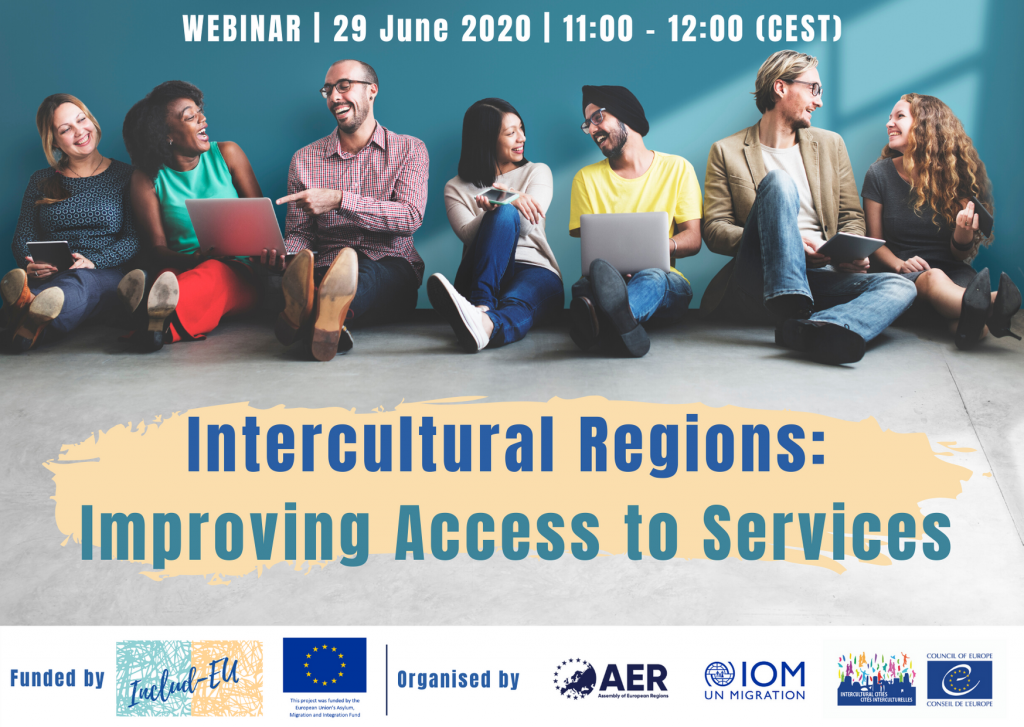
Improving access to public services: Join the webinar!
